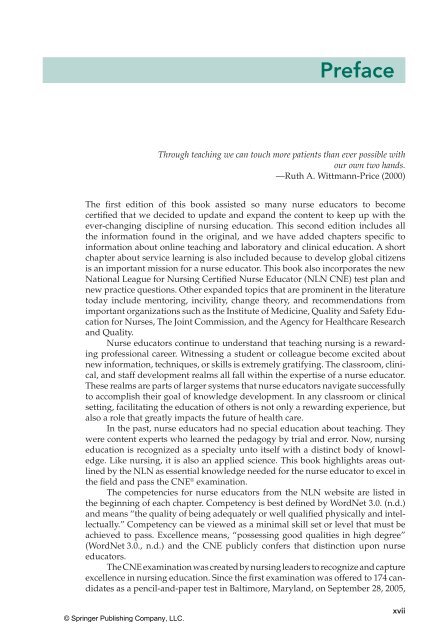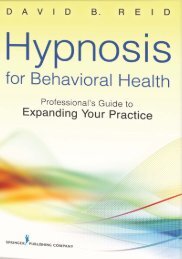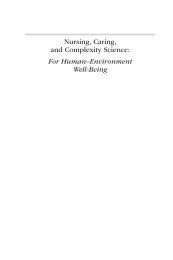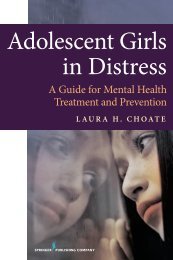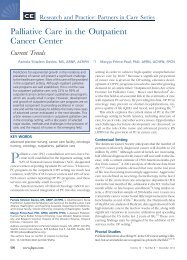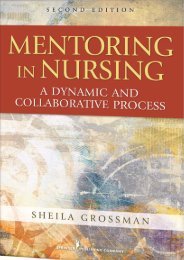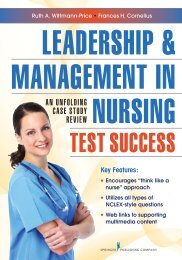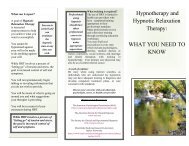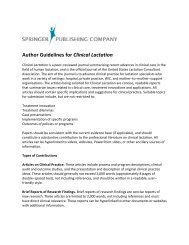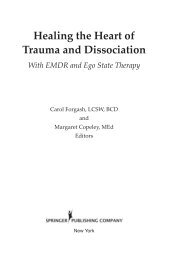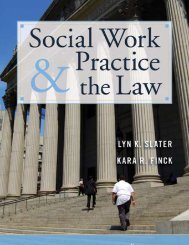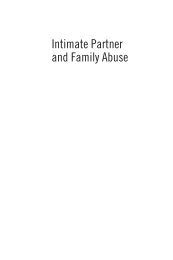Download - Springer Publishing
Download - Springer Publishing
Download - Springer Publishing
Create successful ePaper yourself
Turn your PDF publications into a flip-book with our unique Google optimized e-Paper software.
Preface<br />
Through teaching we can touch more patients than ever possible with<br />
our own two hands.<br />
—Ruth A. Wittmann-Price (2000)<br />
The first edition of this book assisted so many nurse educators to become<br />
certified that we decided to update and expand the content to keep up with the<br />
ever-changing discipline of nursing education. This second edition includes all<br />
the information found in the original, and we have added chapters specific to<br />
information about online teaching and laboratory and clinical education. A short<br />
chapter about service learning is also included because to develop global citizens<br />
is an important mission for a nurse educator. This book also incorporates the new<br />
National League for Nursing Certified Nurse Educator (NLN CNE) test plan and<br />
new practice questions. Other expanded topics that are prominent in the literature<br />
today include mentoring, incivility, change theory, and recommendations from<br />
important organizations such as the Institute of Medicine, Quality and Safety Education<br />
for Nurses, The Joint Commission, and the Agency for Healthcare Research<br />
and Quality.<br />
Nurse educators continue to understand that teaching nursing is a rewarding<br />
professional career. Witnessing a student or colleague become excited about<br />
new information, techniques, or skills is extremely gratifying. The classroom, clinical,<br />
and staff development realms all fall within the expertise of a nurse educator.<br />
These realms are parts of larger systems that nurse educators navigate successfully<br />
to accomplish their goal of knowledge development. In any classroom or clinical<br />
setting, facilitating the education of others is not only a rewarding experience, but<br />
also a role that greatly impacts the future of health care.<br />
In the past, nurse educators had no special education about teaching. They<br />
were content experts who learned the pedagogy by trial and error. Now, nursing<br />
education is recognized as a specialty unto itself with a distinct body of knowledge.<br />
Like nursing, it is also an applied science. This book highlights areas outlined<br />
by the NLN as essential knowledge needed for the nurse educator to excel in<br />
the field and pass the CNE ® examination.<br />
The competencies for nurse educators from the NLN website are listed in<br />
the beginning of each chapter. Competency is best defined by WordNet 3.0. (n.d.)<br />
and means “the quality of being adequately or well qualified physically and intellectually.”<br />
Competency can be viewed as a minimal skill set or level that must be<br />
achieved to pass. Excellence means, “possessing good qualities in high degree”<br />
(WordNet 3.0., n.d.) and the CNE publicly confers that distinction upon nurse<br />
educators.<br />
The CNE examination was created by nursing leaders to recognize and capture<br />
excellence in nursing education. Since the first examination was offered to 174 candidates<br />
as a pencil-and-paper test in Baltimore, Maryland, on September 28, 2005,<br />
© <strong>Springer</strong> <strong>Publishing</strong> Company, LLC.<br />
xvii


